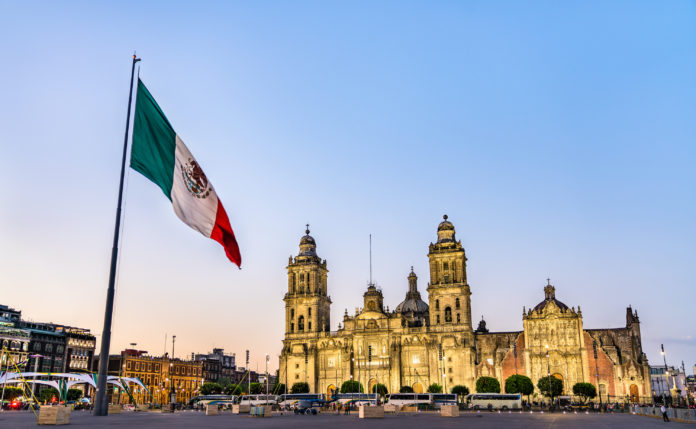
Few countries in the world rely on a family business-based economy1 to the extent that Mexico does. Family-owned businesses make up the backbone of Mexico’s entrepreneurial cash flow2, and maintaining familial control is a top priority across the board, with many of these businesses favouring nepotistic hiring practices.
Mexico’s low shareholder protection has led to a greater concentration of independent ownership, which encourages the success of family firms while decreasing the interest of foreign investors. Mexican entrepreneurs represent more than 90 per cent of the firms listed on the Mexican stock exchange, and many of the top-performers are oligarchical, generations-old – and often industry-monopolising – companies that dictate industry pricing standards.
In the next tier, there exists the middle-class family firms with executive boards made up almost exclusively of relatives. Finally, 30 per cent of Mexico’s economic activity cycles through millions of independent or small-scale family-run business ventures, active within the “informal economy” as they’re small enough to evade tax obligations.
Mexico proves that hiring within the family is a tried and tested strategy to deal with uncertainty. Trust your blood, they say, when it comes to business. For whom could you trust more?3
For a top-down overview of Mexico’s family business-centric economy, we made a list of the five most profitable Mexican family businesses.
5. Grupo Mexico

Revenue: $10,494.8 billion4
Founded: 1978 (company), 1890 (operations) ; Molta-Velasco family5
Employees: 29,612
Acting as the largest mining corporation in Mexico, Grupo Mexico6 is one of the top copper producers in the world. The group contains several subsidiaries, including Asarco, which began its mining operations in Mexico in 1890. More than a century later, Grupo Mexico took full ownership over Asarco in 1999.
The group’s operations also include Ferrocarril Mexicano, the largest rail fleet in the country, as well as the acquisitions of Intermodal Mexico, S.A. de C.V. (a multi-modal service developer in operation since 2001), a multinational border-crossing railroad between Mexico and the USA, Texas Pacifico Inc., and the Florida East Coast Railway, which was developed by American real estate tycoon Henry Morrison Flagler in 1867 and later acquired by Grupo Mexico in 2017.
Before the inception of Grupo Mexico in 1978 by Raul Antonio Escobedo and Larrea Mota Velasco, the company was called Mexico Compania Constructora, which began operating mining projects and the company’s first railway project, the Southeast Railway, in 1936. It expanded over the next several decades, internationalising to Peru, constructing countless mining operation sites for copper and zinc, and acquiring railway lines. Continued purchasing of mining sites has led to Grupo Mexico now handling 87.5 per cent of the country’s total copper production.
4. CEMEX

Revenue: $13,531.0 billion7
Founded: 1906, Gutierrez/Zambrano family8
Employees: 42,024
Multinational building materials company CEMEX9 manufactures and distributes cement to more than 50 countries worldwide. The company was founded in 1906 in coordination with Cementos Hidalgo, a construction plant in Northern Mexico. The two merged into Cementos Mexicanos in 1931 and later rebranded as CEMEX.
The company expanded greatly in the 1980s with overseas exports of cement and quick-crete and began acquiring numerous, smaller cement companies. These acquisitions continued into the 90s with purchases such as the Panamanian Cemento Bayano and the leading cement company from the Dominican Republic, Cementos Nacionales, solidifying CEMEX as one of the top ten largest and most profitable cement companies in the world.
CEMEX has faced some governmental criticism of late, due partly to a WikiLeaks article outing the genuine market shares of the CEMEX company versus its competitors, as well as shining light onto its history of monopolising the industry.
3. Grupo Bimbo

Revenue: $14,669.7 billion10
Founded: 1945, Servitje family11
Employees: 100,000
Grupo Bimbo, the world’s largest baking company, was founded in 1945 by a group of five investors, including Lorenzo Servitje, whose family still oversees the company today. Its earliest products were cellophane-wrapped breads; two years later, it launched a line of pound cakes. Bimbo opened its first Puebla depot outside of Mexico City in 1949 and added the delivery/announcement truck a year later.
Bimbo consistently added new lines of baked goods to its inventory and, by 1979, owned three companies, ran 12 production plants and employed more than 15,000 people. It began exporting into the USA in 1984 and today runs numerous overseas divisions throughout North America, Europe and Asia.
Under the oversight of Lorenzo’s son, Daniel Servitje, Grupo Bimbo began making major acquisitions in the 90s and 2000s, solidifying its place as the largest baking company in the world in 2011.
2. Alfa S.A.B. de C.V.

Revenue: $18,647.5 billion12
Founded: 1974, Garza family
Employees: 68,000
The Monterrey-based, multinational conglomerate Alfa Group13 is a primarily industrial business group that specialises in the production of petrochemicals, aluminium auto components and refrigerated foodstuffs, as well as IT and telecommunication services. It operates in 21 countries throughout the Americas, Europe and Asia.
Alfa’s founders, led by Don Roberto Gaza, split their vast holdings into three subsidiaries which focused independently on the production of steel, cardboard and mining. To help expand the steel market, which accounted for 80 per cent of Alfa’s profit, the company expanded into a diversification programme to begin acquiring smaller companies with resources for chemical production that would coincide with the needs for steel production. This programme brought in material development such as synthetic fibres (specifically polyester) and petrochemicals.
Major company restructuring occurred throughout the 1980s, and Alfa sold a substantial number of holdings the following decade to make up for a dramatic profit loss due to a universal decrease in steel demand, as well as the collapse of the Mexican peso in 1994. The company managed to survive these major profit losses and has shown a steady profit increase since 2015.
1. America Movil, S.A.B. de C.V.

Revenue: $52,833.7 billion14
Founded: 2000, Carlos Slim15
Employees: 189,448
Carlos Slim, one of the world’s richest men, founded Grupo Carso in 1990. Carso Global Telecom separated from Grupo Carso in 1996 and parented telecommunications companies Telmex, Telcel and America Movil. Telcel, now a subsidiary of America Movil, is the largest mobile operator in Mexico. America Movil has made numerous telecommunications acquisitions since its inception in 2000, including Jamaican mobile operator Oceanig Digital, and controls its US subsidiaries under various brand names (TracFone Wireless, Straight Talk, and Page Plus Cellular).
America Movil’s holding company, America Telecom, has invested in various cellular telephone companies outside of Mexico, particularly in South America and the USA, in a collaborative venture with Microsoft. The group is headquartered at Plaza Carso, an estimated billion-dollar facility in Mexico City dedicated to housing the majority of mogul Carlos Slim’s holdings.
As of 2012, America Movil stood as the largest company in Mexico with more than $67 billion of assets. With a market value of $93 billion, it is estimated to be the highest-valued Mexican company, registering as being worth more than its three most profitable competitors combined.
1David Bain, The World’s Top 750 Family Businesses Ranking
2Jorge Alejandro Silva, Rodríguez de San Miguel, Empresas Familiares en México
3Daniel Bardsley, Down Mexico Way
5Corporate Communincation, Grupo México
6Ibid
8Corporate Communication, Cemex
9Ibid
11Corporate Communication, Grupo Bimbo
12Corporate Communication, Alfa
13Ibid









